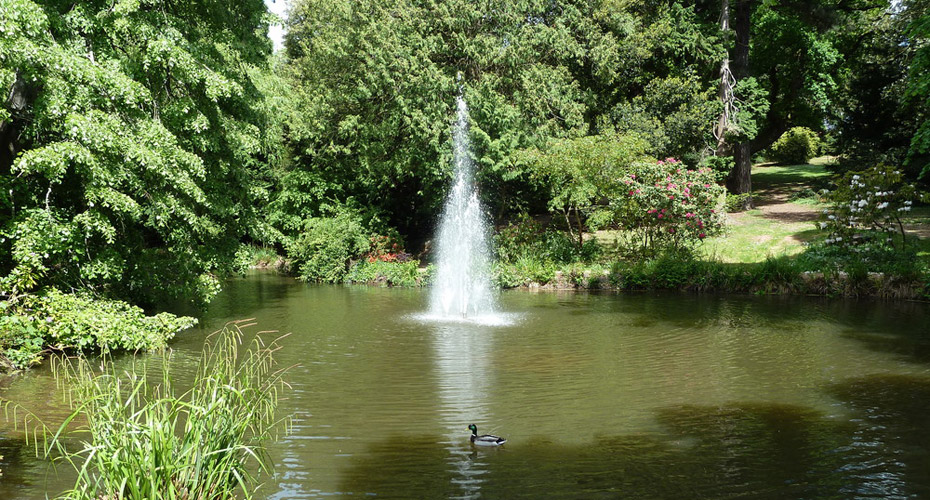
To help us understand how useful these materials are, please complete this quick Feedback Survey.
Criticisms of stewardship
Key aims:
- To show that stewardship is not universally accepted as a good basis for environmental ethics
- To highlight some of the main criticisms made of the idea that humans should see themselves as stewards of the earth
Although stewardship has become a very prominent idea in Christian views on the environment, there have also been criticisms of it.
- It does not have a strong biblical basis; nowhere is humanity explicitly given the role of stewards of creation.
- It gives humanity a 'managerial' role – as if they were 'left in charge' by an absentee landlord. Does this mean God has disappeared from the scene?
- It regards the world as a 'natural resource', to be managed well for human benefit. Or it may suggest that nature is best when ‘managed’ by humans – organising ‘wilderness’ into ‘garden’.
- It is an arrogant ethic, suggesting that humans have both the right and the ability to organise creation, and that nature is better off when managed by us.
- It is highly anthropocentric (human-centred), putting humans in a unique and privileged position. See Humans and (other) animals for some alternatives.
We can assess the validity of the stewardship idea from both religious and scientific perspectives.
For Christians the Bible is influential, and it is important to express a view that coheres with Christianity's view of the status and relationships of God, humans and the rest of creation.
From a more scientific perspective, one of the main challenges is to find a way to express some kind of balance between two truths:
- That humans as a species are immensely powerful, as well as being self-reflective, and can therefore uniquely affect the planet's ecosystems, for good or bad.
- That humans do not fully understand nature and cannot control it.
Sometimes scholars seem to stress one of these points while forgetting the other. Theologian Stephen Webb, for example, writes:
The world is shrinking and humans are in charge of all of it, for better or worse. We cannot shirk our responsibility for nature. Nature is largely under our control. The only question is how we will exercise that control.1
Webb rightly stresses the ever-spreading impact of human activity and technology, for which we should take responsibility. But he does not here give equal consideration to our lack of control and understanding. Can we control climate change, earthquakes, tsunamis, and volcanoes? Should our aim really be to exert more and more control?
Eco-theologian Clare Palmer gives what are probably the most forceful criticisms of stewardship in her essay first published in 1992.2 She highlights a number of differing problems:
- Biblical problems: 'Claiming a biblical pedigree for the idea is at best to oversimplify, and may be largely mistaken'.3
- Theological problems: '...perceptions of stewardship have great difficulty in accommodating the idea of God's action or presence in the world. God is understood to be an absentee landlord, who has put humanity in charge of his possessions'.4
- Political problems: The idea of stewardship comes originally from societies where feudal landlords left managerial slaves in charge of their property. Thus 'The political message encoded in stewardship is one of power and oppression; of server and served'.5
- Ecological problems: 'In the light of evolutionary science, the idea that the earth “needs to be managed” by humans is obviously a nonsense'.6 Stewardship implies that humans are capable of managing the earth, and tends to suggest that the natural world is a 'resource' for human use. Similar criticisms are made by James Lovelock, who proposes an alternative(Gaia) hypothesis.
- Overall: 'Stewardship of the natural world, whether Christian or otherwise… remains profoundly anthropocentric and un-ecological, legitimating and encouraging increased human use of the natural world'.7
Biblical questions:
- Does the Bible teach that humans should be stewards of the earth? If so, where and how?
- Are there other themes in the Bible that might suggest different models of the relationship between God, humanity and the earth?
- When people claim that the Bible teaches stewardship, how valid is that claim? Is it based on what the Bible explicitly says, or on a certain interpretation?
Theological questions:
- What model of relationships between God, humanity and the non-human creation does 'stewardship' imply? Do you find this a good model? If not, why not, and what are the alternatives?
Political questions:
- Do the basic ideas of stewardship reflect the structures of societies which we might now regard as immoral (e.g. using slaves)?
- Is it good or bad to imagine humans as 'managers' of the earth?
Ecological questions:
- To what extent, if at all, are humans in control of nature?
- In what ways, if any, does the natural world require human management?
- To what extent are views on such questions determined by religious convictions or by scientific insights?
References
1Stephen Webb, Good Eating (Grand Rapids, MI: Brazos/Baker, 2001), p. 24.
2Reference: Clare Palmer, 'Stewardship: a Case Study in Environmental Ethics', originally published in Ian Ball, et al., The Earth Beneath: A Critical Guide to Green Theology (London: SPCK, 1992), pp. 67-86. Reprinted in R.J. Berry (ed.), Environmental Stewardship: Critical Perspectives, Past and Present (London: T&T Clark, 2006), pp. 63-75. Pages cited are from the 2006 reprinted edition.
3Palmer, 'Stewardship', p. 66.
4Palmer, 'Stewardship', p. 68.
5Palmer, 'Stewardship', p. 69.
